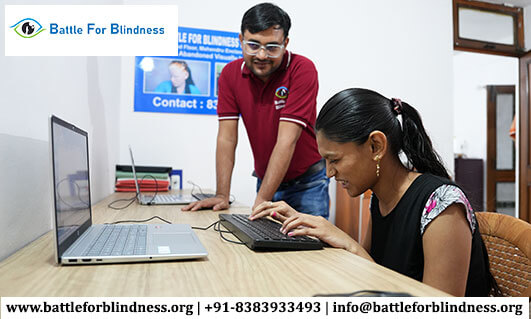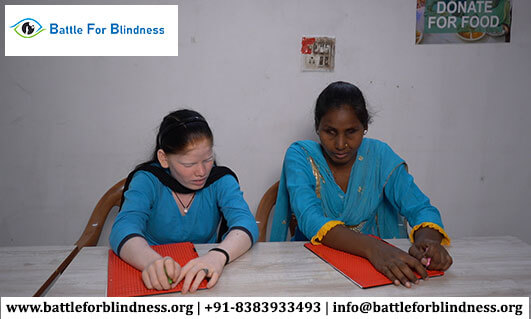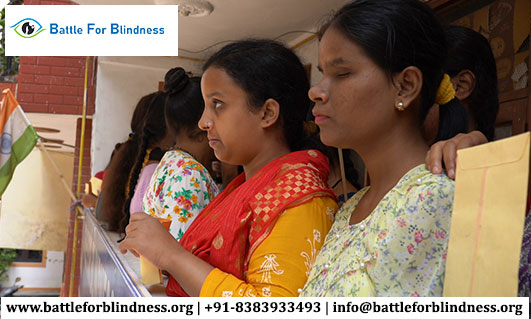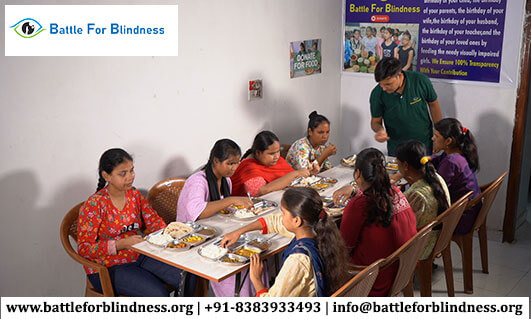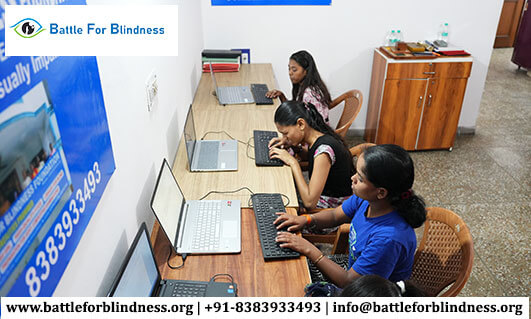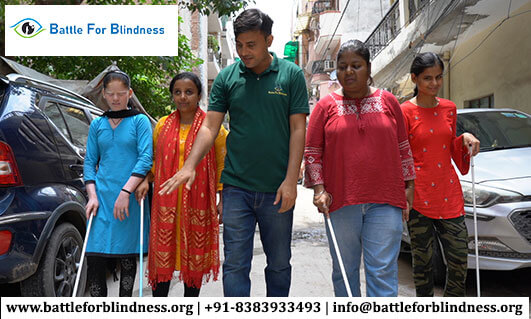
Experiencing acquired blindness can be a life-altering journey, often requiring a profound adjustment in one’s daily routines, mindset, and lifestyle. When sight loss occurs later in life—whether from an accident, illness, or progressive condition—individuals face unique challenges in transitioning to this new reality. With support, self-compassion, and practical strategies, it is possible to navigate these challenges and rediscover purpose and joy. Here, we explore some insights and strategies for adjusting to life after acquired blindness.
1. Emotional Adjustment: Finding Balance
For most people, the initial phase after vision loss involves navigating a wide range of emotions, from grief and frustration to anger and fear. Each emotion is valid, and working through them is essential for mental health. Seeking counseling or joining support groups can provide relief and connection with others who understand firsthand.
Counselors specializing in vision loss can offer coping techniques and encouragement, guiding individuals through practical and emotional transitions. Support groups, both online and in-person, can also provide a space to share stories, frustrations, and successes, helping individuals feel less isolated.
2. Learning New Skills: Building Independence
Daily life after vision loss requires developing new skills and approaches to achieve independence. Here are a few core areas that many people find transformative:
-
Mobility and Orientation Training: Techniques like white cane training and, if needed, guide dog support can empower individuals to navigate environments safely and confidently.
-
Daily Living Skills: Specialized training for essential tasks such as cooking, dressing, grooming, and household management is often available through rehabilitation centers. These centers offer training on adaptive methods and tools that help with everyday tasks.
-
Assistive Technology: Tools like screen readers, voice-activated assistants, and refreshable Braille displays make it possible to continue working, reading, and staying connected. Learning to use these devices can enhance independence and open doors to new opportunities.
3. Adapting Your Home: Creating a Safe Environment
Making small adjustments at home can greatly improve accessibility and safety. Some key steps include:
-
Organizing Spaces: Designate specific areas for everyday items, such as keys, glasses, and kitchenware, to help locate items by touch.
-
Lighting and Contrast: For those with low vision, brighter lighting and contrasting colors can make navigation easier. Labeling objects with tactile markers or Braille labels can further aid identification.
-
Reducing Hazards: Remove unnecessary furniture and keep pathways clear to prevent tripping. Adding textured floor markers at stair landings and doorways can also enhance safety.
4. Rethinking Employment: Exploring New Opportunities
For many, a significant part of adjusting to life after blindness involves rethinking career possibilities. Some may continue in their previous field with adaptations, while others may consider new paths. Vocational rehabilitation services can provide:
-
Job Readiness Training: Learning skills like Braille, computer use, and communication with assistive technology can enable individuals to stay competitive in the workplace.
-
Career Counseling: Career specialists help individuals explore their interests, assess strengths, and identify job opportunities that align with their skill sets.
-
Workplace Accommodations: Learning about legal rights, including those under the Americans with Disabilities Act (ADA), can help individuals understand their rights to accommodations. Many employers are increasingly open to providing support, such as modified workstations, adaptive software, and flexible work hours.
5. Building a Support Network: Family, Friends, and Community
Navigating a new reality is often more manageable with a solid support system. Family members and close friends play a crucial role, providing practical assistance and emotional support. Open communication is key—letting loved ones know about the challenges and how they can help makes the journey easier.
Connecting with local or online communities of visually impaired individuals can also be invaluable. Organizations and non-profits that focus on visual impairments often provide resources, social groups, and mentorship programs to help individuals transition to life after sight loss.
6. Discovering New Hobbies and Interests: Embracing Joy
Acquired blindness doesn’t mean letting go of life’s pleasures. Many individuals discover new hobbies and interests post-vision loss, often finding fulfillment in creative outlets or physical activities. Here are a few ideas:
-
Adaptive Sports: Sports such as goalball, tandem cycling, and adaptive skiing allow individuals to stay active and enjoy the benefits of exercise.
-
Arts and Crafts: Creative expression—whether through music, tactile painting, or sculpture—can be incredibly rewarding. Numerous adaptive tools make these activities accessible.
-
Learning and Growth: Reading via audiobooks, podcasts, and classes designed for the visually impaired can open new worlds of knowledge and enrichment.
7. Practicing Self-Compassion: Embracing the Process
Adjusting to life with vision loss is an ongoing process, one that requires patience and self-compassion. There will be ups and downs, and every individual’s journey is unique. Taking time to recognize small victories, focusing on progress rather than perfection, and practicing self-care can all aid in the adjustment process.
Resources for Individuals Adjusting to Vision Loss
Many resources are available for individuals and families affected by acquired blindness:
- National Federation of the Blind: Offers programs, resources, and support groups to help individuals adjust to vision loss.
- American Foundation for the Blind: Provides comprehensive resources on mobility, technology, and employment.
- Vision Rehabilitation Centers: These centers offer training in daily skills, technology use, and orientation and mobility for those with acquired blindness.
Conclusion
Adjusting to acquired blindness involves reshaping one’s view of the world and finding new ways to engage with it. With time, support, and self-determination, many individuals not only adjust to their new reality but also discover new strengths and possibilities, embracing life in meaningful and fulfilling ways. The journey may be challenging, but it’s also filled with opportunities to rediscover purpose, independence, and joy.
